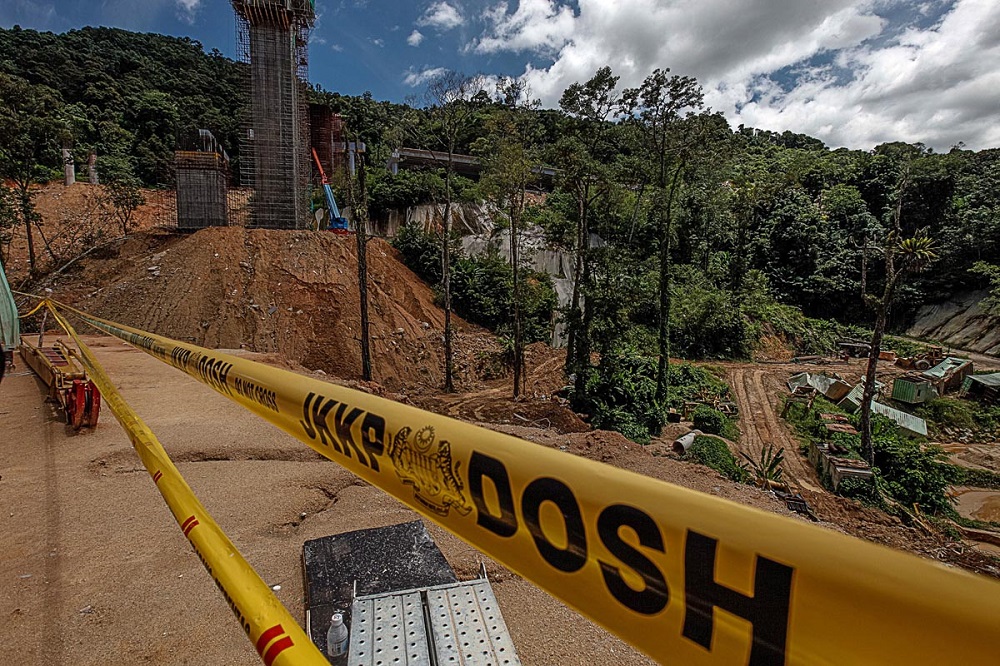GEORGE TOWN, Jan 31 — The Penang Consumers Association (CAP) and Sahabat Alam Malaysia (SAM) today urged the Penang government to publicly release the investigation results into the Bukit Kukus landslide that killed nine workers last October.
The two non-governmental organisations said the state government must disclose which relevant authorities were being held accountable for their inactions in relation to the tragedy.
“This call is made in the wake of works being allowed to proceed on the road, following the lifting of stop-work orders issued by the Department of Occupational Safety and Health as well as the Majlis Bandaraya Pulau Pinang (MBPP),” CAP and SAM president SM Mohamed Idris said in a statement.
He said the state held internal investigations into the fatal landslide that killed nine workers so it is vital that the findings be made public for the sake of transparency.
“It is also critical to know what measures are being taken and conditions imposed to ensure that there will be no repeat of any untoward incidents once work on the road project commences,” he said.
He added that CAP had written to the Penang Chief Minister’s office, the MBPP Mayor and the Department of Environment (DOE) on why the Bukit Kukus elevated road project was exempted from needing an Environmental Impact Assessment (EIA) report.
“According to state officials, an EIA was not required, as this was the view of the DOE for which an exemption letter was given,” he said.
He demanded that the authorities clarify why an exemption was given for this project, when the project involved hill lands above 76m and slopes exceeding 25 degrees.
He said among the projects that required EIA were projects involving land clearing of 50 per cent of the area or more having slopes exceeding 25 degrees except quarries.
In the case of the Bukit Kukus project, Mohamed Idris said the project involved the clearing of areas which exceed 25 degrees and regardless of the type of road, a detailed environmental impact assessment (DEIA) should be required.
He pointed out that the current Penang Structure Plan (PSP) contained prohibition against any form of development on lands with a slope of more than 25 degrees or on lands situated more than 75m above sea level except for special projects.
“If the Bukit Kukus Road project was such a ‘special project’, then the PSP states clearly that the development must be subject to strict controls by complying with guidelines for hillslope developments and it must also have an approved EIA in addition to approval from the State Planning Committee,” he said.
He said the absence of an EIA for the Bukit Kukus project was a clear violation and non-compliance of the PSP.
The PSP has legal effect as it is done under the Town and Country Planning Act 1976 and is a gazetted document.
“The state authorities including the MBPP as well as the DOE must abide by the PSP and should have ensured that a DEIA was done for the project, which should have been subject to public display and consultations prior to any approval for this project,” he said.
He stressed that the Bukit Kukus landslide tragedy cannot be regarded as a “worksite tragedy” as it involved sensitive hill lands.
“The State Authority, the MBPP and the DOE must explain how they allowed non-compliance of the PSP as well as the EIA Guidelines,” he said.
“If the authorities themselves did not follow the laws, then they must be held responsible and accountable for their inactions too,” he added.
He said the authorities themselves must accept some blame and responsibility for their inaction.
“Therefore, we would like the findings of the investigations done by the state to be made public, to understand if the relevant authorities are going to be held accountable for their inactions,” he said.



















